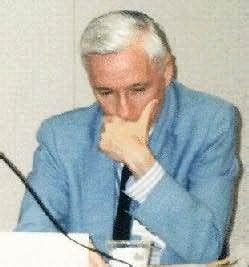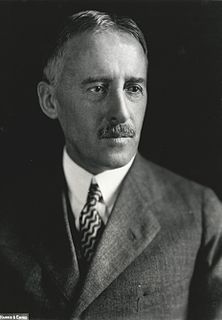A Quote by Daniel Kahneman
The idea that you can ask one question and it makes the point - well, that wasn't how psychology was done at the time.
Related Quotes
Do not ask the stones or the trees how to live, they can not tell you ; they do not have tongues; do not ask the wise man how to live for, if he knows , he will know he cannot tell you; if you would learn how to live , do not ask the question; its answer is not in the question but in the answer, which is not in words; do not ask how to live, but, instead, proceed to do so.
When you go to a voice-based interaction, you can't tell people, 'Ask me this question and structure it in this way.' And if they ask a question, and you have a bad answer, first time, maybe they'll be okay with it. Third time, they're going to say, 'This is a complete waste of time. I'm going away.'
No one should ever ask themselves that: why am I unhappy? The question carries within it the virus that will destroy everything. If we ask that question, it means we want to find out what makes us happy. If what makes us happy is different from what we have now, then we must either change once and for all or stay as we are, feeling even more unhappy.
When you ask why did some particular question occur to a scientist or philosopher for the first time, or why did this particular approach seem natural, then your questions concern the context of discovery. When you ask whether the argument the philosopher puts forth to answer that question is sound, or whether the evidence justifies the scientific theory proposed, then you've entered the context of justification. Considerations of history, sociology, anthropology, and psychology are relevant to the context of discovery, but not to justification.
And one day we must ask the question, "Why are there forty million poor people in America?" And when you begin to ask that question, you are raising questions about the economic system, about a broader distribution of wealth. When you ask that question, you begin to question the capitalistic economy.
Well, it's not all the same, but there are a lot of parallels. I'm not sure how to answer [on psychology background], but I think when I was studying psychology I had a professor and a friend who would talk about "process" all the time. Your process, his process, the group's process. There's some carryover from that discussion to my creative work.
What did I discover during my solo—besides learning to unwrap my energy bar ahead of time? That you ask yourself a lot of questions when you're alone on a bike for that long. One question more than others: Why the heck am I doing this? When I was done, I think I had found the answer: For the satisfaction that comes with pushing your body to the breaking point and conquering the unknown.





































